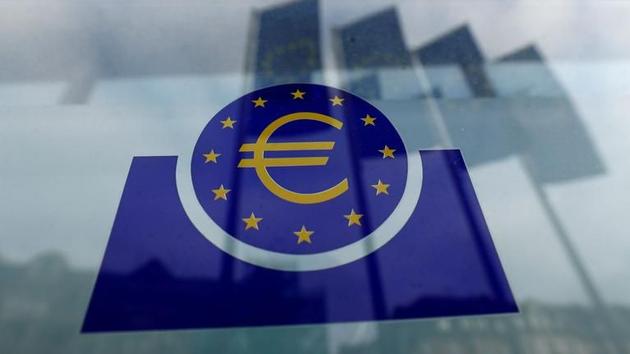Nicolas Goetzmann is responsible for research and macroeconomic strategy at Financière de la Cité.
FIGAROVOX.- Several European countries last week called for the issue of "Corona bonds" to finance European health and financial solidarity. What exactly do we mean by this term? Is this a relevant response for you to this dramatic crisis?
Nicolas GOETZMANN.- On March 25, several European governments, including France, Italy and Spain, sent a letter to the President of the European Council, Charles Michel, to propose the implementation of these "Corona bonds" with the aim of providing a coordinated response to the Covid-19 crisis. It is a question of borrowing collectively, through a European institution, in order to finance the measures necessary to counter the effects of the crisis. Unsurprisingly, this proposal was rejected by the Netherlands and Germany, or even Austria. We can very well criticize what can be perceived as a lack of solidarity on the part of these countries, but the initial strategy is inadequate in relation to the issues.
The initial strategy is not adapted to the challenges.The emerging economic crisis requires a rapid and strong response - which is already a contradiction with European liabilities - while the implementation of a European solution requires taking almost insurmountable legal, political and institutional steps. To embark on such a path, in the current circumstances, is an assurance of slowness, on the one hand, but also of disappointment on the amounts that could be allocated. If a European budgetary response is born, and we can very well anticipate it in one form or another, it is already certain that it will not be adapted to the scale of the crisis. The 27 can only agree on the basis of the lowest bidder. Even if countries like Germany or the Netherlands concede something, it will never be up to Italian or Spanish needs. By nature, a European agreement is a minimum agreement which is not achieved on the basis of needs - from Italy or Spain - but on the basis of concessions from the countries of the North. The scale of the crisis we are going through cannot allow such an approach. In reality, by doing so, we are wasting time, because a solution already exists.
On March 18, the European Central Bank announced the implementation of a quantitative easing plan which provides for the redemption of 750 billion European debts, most of which will be spent on State debt. By doing this, the ECB gives the signal that countries can go into debt at the national level to finance their actions to fight the crisis, both health and economic.
It is perfectly useless to waste time while aggravating existing tensions at European level.At the same time, the ECB has indicated that it will do "whatever is necessary" to protect the interest rates of different countries, to avoid repeating the precedent of the European debt crisis in 2012. At the same time time, the rules relating to the 3% deficit are now lifted, with the activation of the general derogation clause of the growth and stability pact. Everything is therefore ready for each country to put in place a "national" solution adapted to its needs, with the support of the ECB and the blessing of the European Commission. Seeking to go further when it is urgent to act seems to me perfectly inappropriate and totally counterproductive. France, Spain and Italy already need stimulus packages up to 10 points of GDP, so it is perfectly useless to waste time while aggravating existing tensions at European level, all this to get help that will only represent a fraction of the need
Germany, Austria, the Netherlands and the countries of northern Europe immediately opposed this idea. How do you explain their reluctance to any form of budgetary federalism?
Article 125.1 of the Treaty, known as the “no bail-out” clause, is a foundation of the Union, especially for the northern countries. It is a question of avoiding making pay a State for the expenses of another. One can legitimately take offense at this situation, but "Europe" was built like this. It is obviously possible to find ways to get around this clause in one way or another, but that will not change the reality that many governments do not want to derogate from it. There is for example the MES, the European Stability Mechanism, which can be activated, but this may imply the establishment of certain conditions and will be limited to essentially health actions, it is necessary more than a country facing the demand explicit, which is not really to the taste of Italy for example.
In a situation where a country is faced with an existential crisis, the national framework remains the most effective level.A political solution will no doubt be found to partially mask the damage caused in recent days by reluctance to show solidarity on the part of one or the other, but that will not change anything fundamentally. Countries have to rely on themselves to finance a recovery plan. On the other hand, they can and must rely on the European Central Bank. It would be much more effective to exert maximum pressure so that the ECB offers "unlimited" support to its member countries, as the Federal Reserve of the United States does, rather than proposing "corona bonds".
The discrepancy between what is happening in Europe and in the United States is very revealing. The Impeachment procedure against Donald Trump has just ended, the elections are approaching in the United States, the opposition between Democrats and Republicans is therefore at a paroxysmal level. Despite this, the two parties managed to agree in less than two weeks to announce a plan for economic support of $ 2.1 trillion, or nearly 10% of GDP. This is unprecedented since the New Deal. And it is increasingly likely that additional support will be implemented in the near future. In such a situation where a country is faced with a crisis which can be considered as existential, the national framework remains the most effective level. This does not preclude cooperation, but it is truly counterproductive to imagine a "European" solution that does not exist. Europeans have been affected before the United States, and more severely than they are at the moment; the lack of a current response is only new proof of this European problem.
The entirety of the elements of this crisis puts national systems in tension. We see it with health systems, budgets, etc. And the answer to bring must materialize at this level. Especially since the European varnish is ensured by the action of the European Central Bank. In reality, bracing for the European solution, we are only revealing the flaws of the EU and the euro zone.
Emmanuel Macron seems however at all costs to want to use the European level to lead a policy of revival, which seems astonishing compared to what you describe. What is he looking for?
Emmanuel Macron seems quite simply to want to obtain a European "political victory". We could already say that this is not really the time. The presented solution of "Corona bonds" is a federalist leap which clearly corresponds to its ambition, but such a solution can perfectly result in a partial - and additional - loss of the budgetary power of the country. It is a double-edged ambition, which, once again, seems as inappropriate in this period as ineffective on a purely accounting level.
Jean Quatremer provided another element of response after questioning the Élysée Palace, which declared “In this extraordinary period, we have suspended all our rules. If we leave it there, that is to say, the national laissez-faire and we will see who will get out of it, we can logically retaliate after the crisis: but then why are we bored in normal times? ”
It is a question of favoring the appearance of the usefulness and the merits of European budgetary rules to the detriment of the effectiveness of strong and immediate action.To avoid questioning by the population of European rules linked to deficits, the Élysée Palace seems to prefer not to act as massively as it could. This is an incredible situation where it is a question of favoring the appearance of the usefulness and the merits of European budgetary rules to the detriment of the effectiveness of a strong and immediate action against the current crisis. Economic crisis management is truly in tune with the level of health crisis management.









